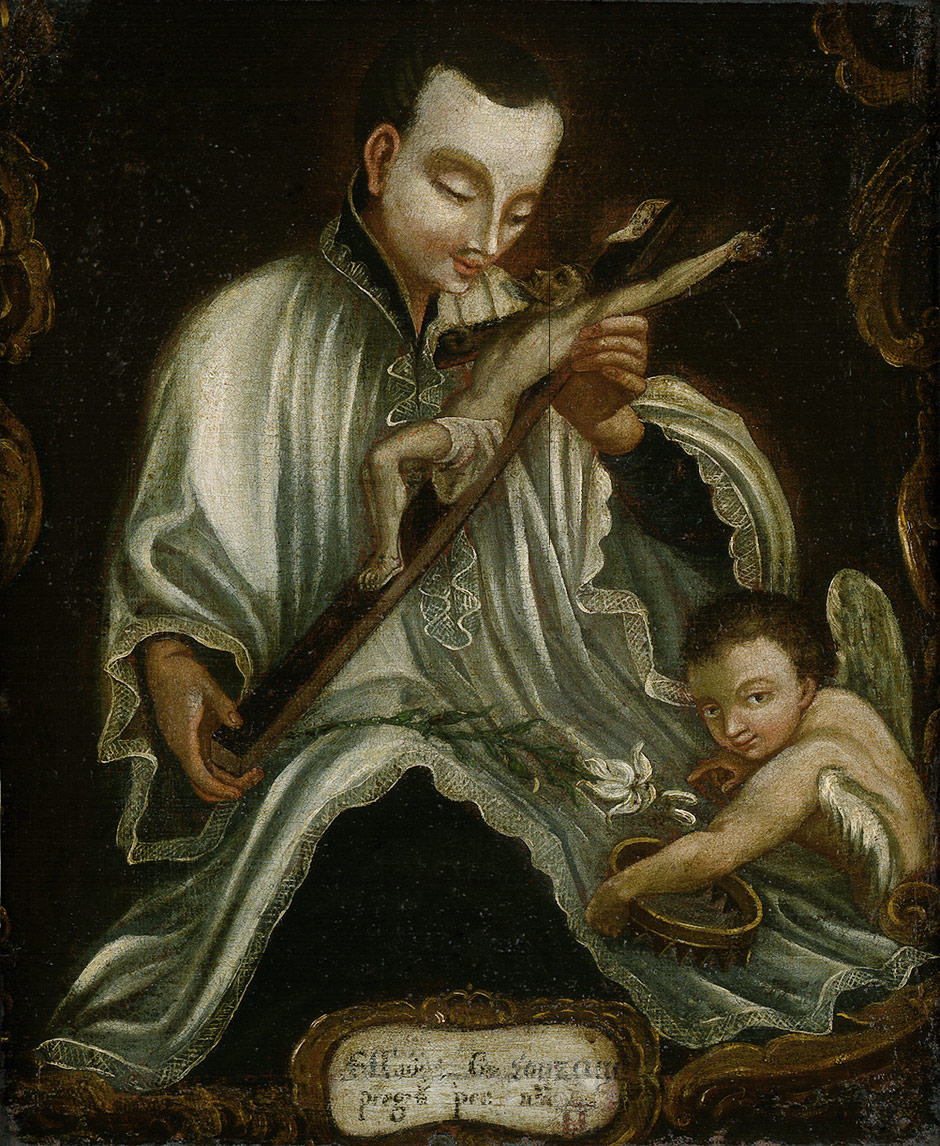 |
| St. Aloysius Gonzaga, S.J. |
The Jesuits lost a devoted friend in the person of
St. Charles Borromeo, who died in 1584. It is a calumny to say that he had turned against them and had taken the seminary of Milan from their direction. It was they themselves who had asked to be relieved of the responsibility, for he had so multiplied their colleges in his diocese, that it was impossible to give the seminary the attention it required. It is true that he was greviously offended by one individual
Jesuit who injected himself into a controversy that was going on between the governor and the archbishop, and assailed the great prelate in the pulpit of the very church which had been given to the Society by Borromeo; but
Claudio Aquaviva quickly brought him to the cardinal's feet to ask forgiveness, and then suspended him for two years from preaching. That incident, however, in no way diminished the affection of the saint for the Society. His last Mass was said in the Jesuit novitiate which he had founded, and he died in the arms of his Jesuit confessor,
Father Adorno, two days afterwards. Seven years later, on June 21, 1591, another saint died, the young
Aloysius Gonzaga. Borromeo knew him well, and had given him his first Communion. This boy saint was not only an angel of purity, but also a martyr of charity, for he died of a fever he had caught from the victims of a plague whom he was attending during a pestilence that devastated Italy. The venerable
Robert Bellarmine was his confessor and spiritual father, and, later, when he was about to expire, he said to those around him:
"Bury me at the feet of Aloysius Gonzaga."


Often there is preparatory work done by others - but hardly noticed.
ReplyDeleteThe preceeding paragraphs describe Cardinal Toletus - who, in effect, defended an attacker of the Church. So often we tend to look at simple "right" and "wrong" while failing to see the complexity of situations.
"During his dying illness, Father Bellarmine, a man up in years by then, would stay hours with his penitent and Aloysius asked him, "is it possible to go straight to Heaven without any purgatory", 'yes, Bellarmine said, it's quite possible'. "Well, can I ask for that grace?" 'You sure can.' So he begged for the grace to, when he died go straight to Heaven and no purgatory. The night before he died, he had an ecstasy all night. With the members of his community around him, he was talking to the rector who was standing over his bed, "we're going, father, we're going". The rector said, 'where are we going?' "We're going to Heaven". So the rector jokingly said, 'You'd think he was going to Froscoty' (that, by the way, is a Jesuit villa outside of Rome). Just before he died, he pronounced the words, "into Thy hands" and passed away. He was canonized in 1726 and his relics, which I prayed before many times, are in the Church of St. Ignatius in Rome. He wrote many letters which have been preserved and are worth reading. 'The Best Life of St. Ignatius' is by the same Fr. Broderick, remember? but 'The Best Life of St. Aloysius' is Fr. Martindale. Martindale's life of Aloysius has large chunks of his letters … makes fine meditation."
ReplyDeleteServant of God John Hardon SJ
There are many good biographies of Aloysius. Fr. Hardon--not a historian and a protector of sexual abusers--is not a useful guide.
ReplyDelete“To all our persecutors we say: ‘you are our brethren; apprehend not us but rather the truth of God."
ReplyDelete--St Justin Martyr 150 AD
http://youtu.be/Ff1EBaUUneY
No one is persecuting you by pointing out a documented case of sexual abuse.
ReplyDelete